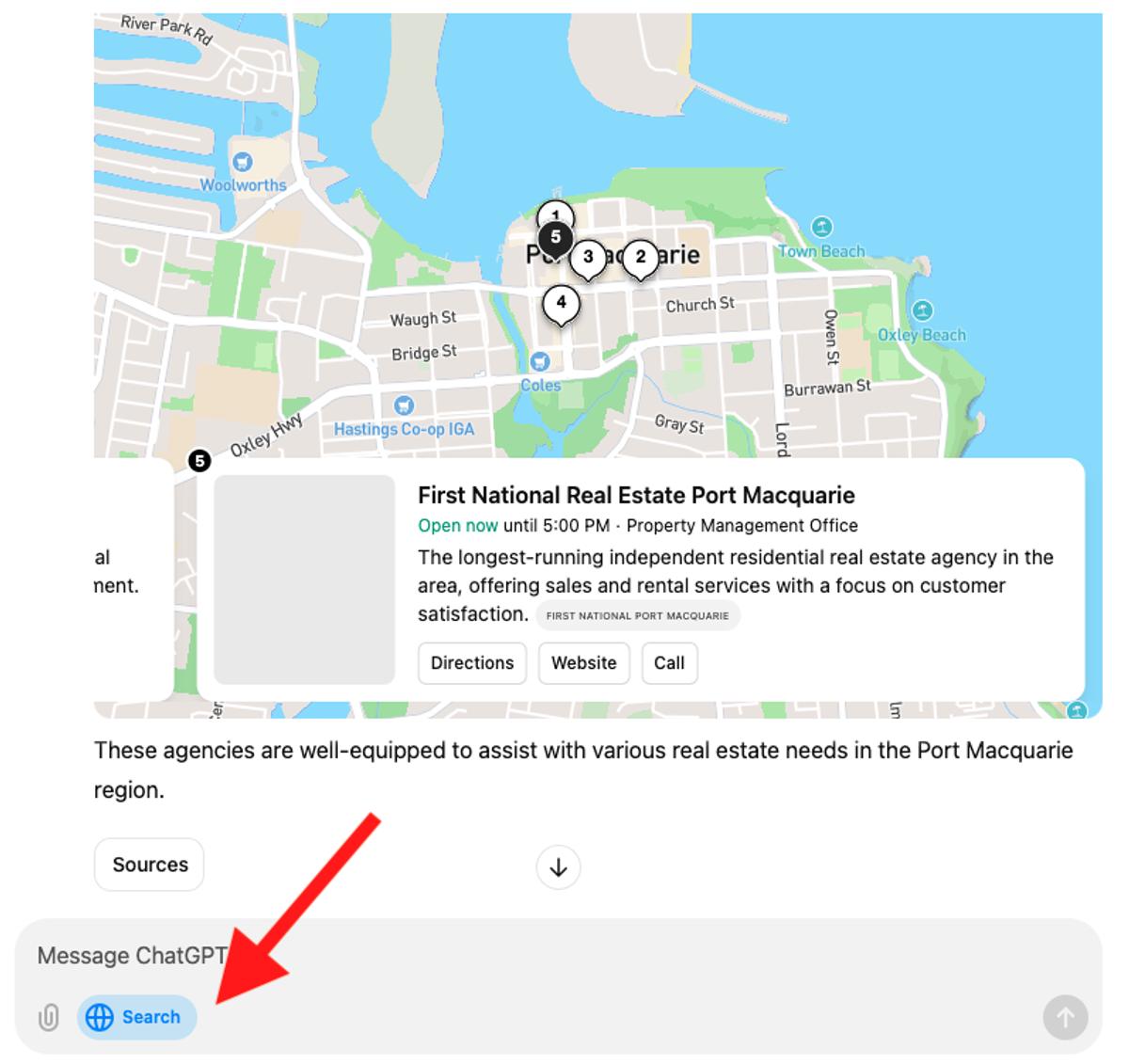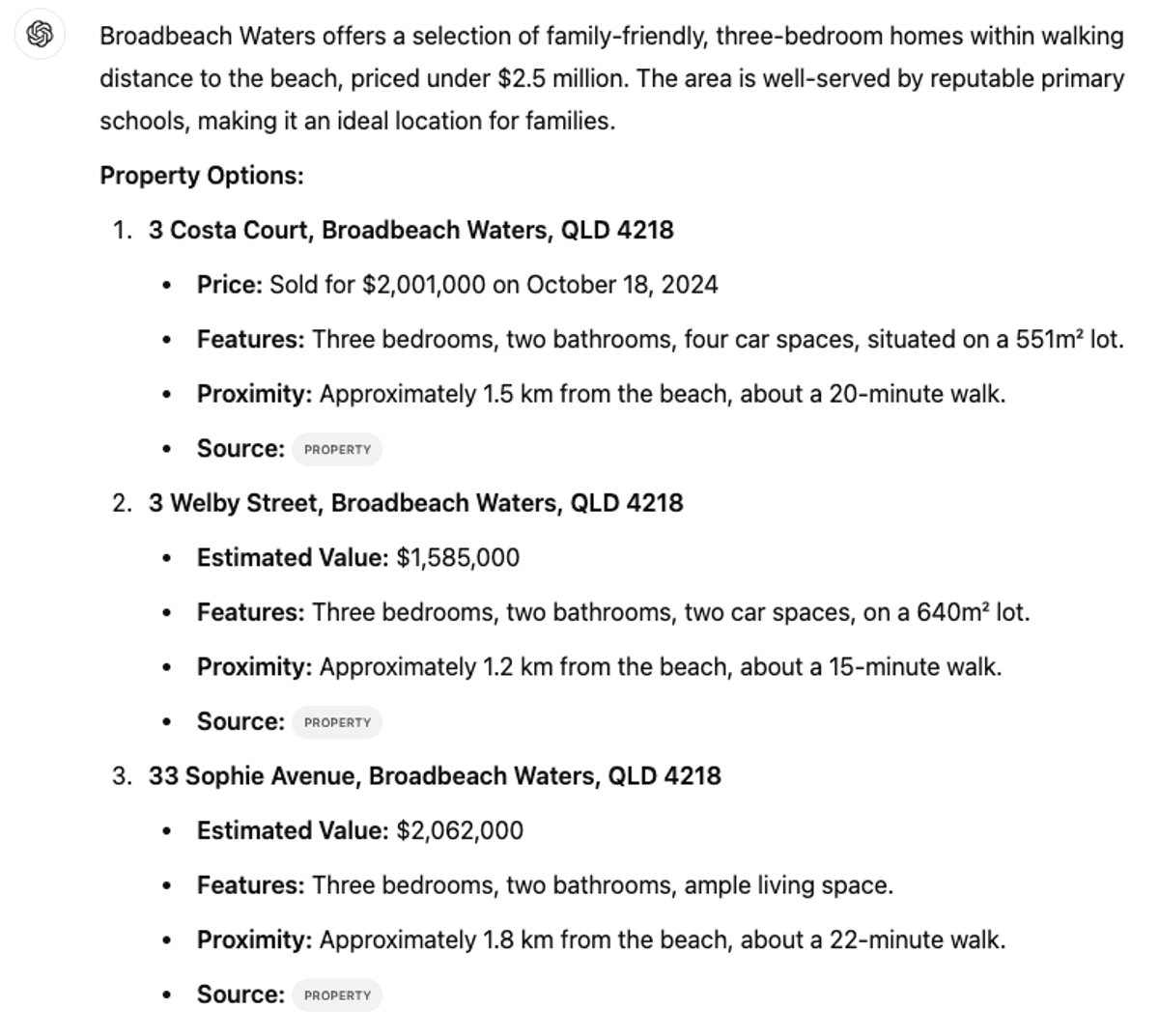AI and Technology

Could ‘ChatGPT Search’ change everything?
Last week, OpenAI unveiled ChatGPT Search, allowing the World’s favourite AI Chatbot to search web sources. Could this mean the beginning of the end of Google’s dominance and what does it mean for your agency’s position in search?
After months of rumours and speculation, OpenAI’s search transformation is finally here. The move could signal a major shift in how we access info online, blending AI's conversational abilities with traditional search functionality, which could reshape both the search engine landscape and user habits.
Once you have added the extension to your Chrome browser, you’ll notice the arrival of a ‘Search’ button that you can toggle to activate. From there, initial impressions of the tool are that it offers an entirely different user experience from Google. You no longer have to dig through search results and navigate adverts to find the answer to your question. It simply delivers direct, conversational answers, and you can ask more questions.
Want to know more? Just keep asking questions naturally - no need for those weird search engine keywords we've all gotten used to.
So, if you’ve fought the good fight to reach the top of Google’s Map Pack, your position may now be threatened as we suggested at our Hobart Convention in May last year.
ChatGPT Search definitely doesn’t produce the same result when you search for ‘real estate agents + your suburb’. There appears, at this point, to be no obvious rationale behind the order in which it presents real estate agencies in your suburb – and it definitely does NOT reference Google’s star rating/reputation measures. What it does do is quietly reference the Bing search engine for its answers.
But Google remains the dominant force right, so why should we care?
Well, look at the numbers. ChatGPT is already getting huge amounts of traffic. In September 2024, it had over 3.1 billion visits, which is 112% more than last year and nearly 19% more than just the month before! Google is still the giant with 82 billion visits in the same time period. But will it stay that way? As the last couple of years have taught us, things can change pretty quickly in the tech world.
What about real estate? Some big changes coming…
In the US, real estate portals have started using chatbots and natural language plus a myriad of other data points to help buyers on their journey. Flyhomes.com adds to newcomers like ZeroDown and Redfin.com using AI-powered search features to change the way we search for property.
But, back to ChatGPT Search… Instead of clicking through dropdown menus and checkboxes on realestate.com.au, you just type:
‘Find me a 3-bedroom house in Broadbeach Waters, walking distance to the beach, good for kids with nice primary schools nearby, under $2.5 million’.
ChatGPT Search returns a boring list of text-based property results that you can click through to. It shouldn’t be long, we think, before images are populated through these results. So, we’ll soon need to start thinking differently about how we market properties online.
What might change?
- Home hunters will ask longer, more detailed questions about properties
- AI tools will understand complex requirements in everyday language
- You'll be able to search for homes that are 'like' another one you love, but in different suburbs
- The AI might give you answers without you needing to click around different websites
- We'll need to write property descriptions that both humans and AI can understand easily
- Less random browsing, more exact matches for what people want
What this means for agents
- You'll possibly get more serious buyers because they know exactly what they want
- Buyers will show up on your digital doorstep, perhaps with really clear ideas about what they're looking for
- You'll need better tools to match properties to what buyers want
How to write property listings in the AI age
Right now, you write copy to get people excited about homes. That's not going to change, but an educated guess would suggest you might need to add some more structured information for the AI to understand.
For example, something like this:
- Property Type: House
- Bedrooms: 3
- Bathrooms: 2
- Parking: 2
- Land Size: 450sqm
- Distance to Transport: 400m to bus stop
- School Zones: Within catchment for [School Names]
- Lifestyle Features: 800m to beach, café strip
The more specific details you can add about the neighbourhood, schools, transport, and lifestyle, the better the AI will understand your listing.
Today, you might write: ‘Close to transport’
Tomorrow you might need to write: ‘800m walk to Bondi Junction station (12 minutes to CBD), 400m to express bus stops on Oxford Street’
And don't worry - the AI will probably help you format all this information. You'll need to check it's all correct.
What should you do about your content?
Whether you're trying to get found on Bing, CGS, Perplexity, or whatever comes next, you still need solid content to get found.
As real estate agents, here’s what we should all be working on:
- Creating really detailed guides about different areas
- Setting up good tracking to see where our website visitors are coming from
Writing helpful content about things like:
- What's happening with property prices
- Who lives in different suburbs
- What's being built or developed nearby
- Investment opportunities
- Rental returns
- Local shops, parks, and facilities
- Common questions people ask about buying in the area
The future of search
For now, it's important to keep doing the usual SEO work that helps websites appear in Google searches. But equally, everybody needs to start thinking about how to make our content work well with AI systems.
What are the three big things that might shape the future of search?
First, there's Apple Intelligence.
Apple is starting to work with ChatGPT in some ways, which might be why OpenAI launched CGS now. We might see more big tech companies either working together or competing to provide AI search tools.
Second, there's what OpenAI might do next.
Some people think they might create their own internet browser, just like Google made Chrome. Imagine what it would mean for marketing if Google finally had some real competition in how people find information online.
Finally, there's the bigger question about how the internet itself might change.
As more people start using AI tools like CGS to find information, fewer people might browse websites directly. Instead of clicking through different websites, people might just ask AI tools their questions and get answers right away. This could mean big changes in how we build websites - we might need to design them to work well with AI tools first, and human visitors second.







